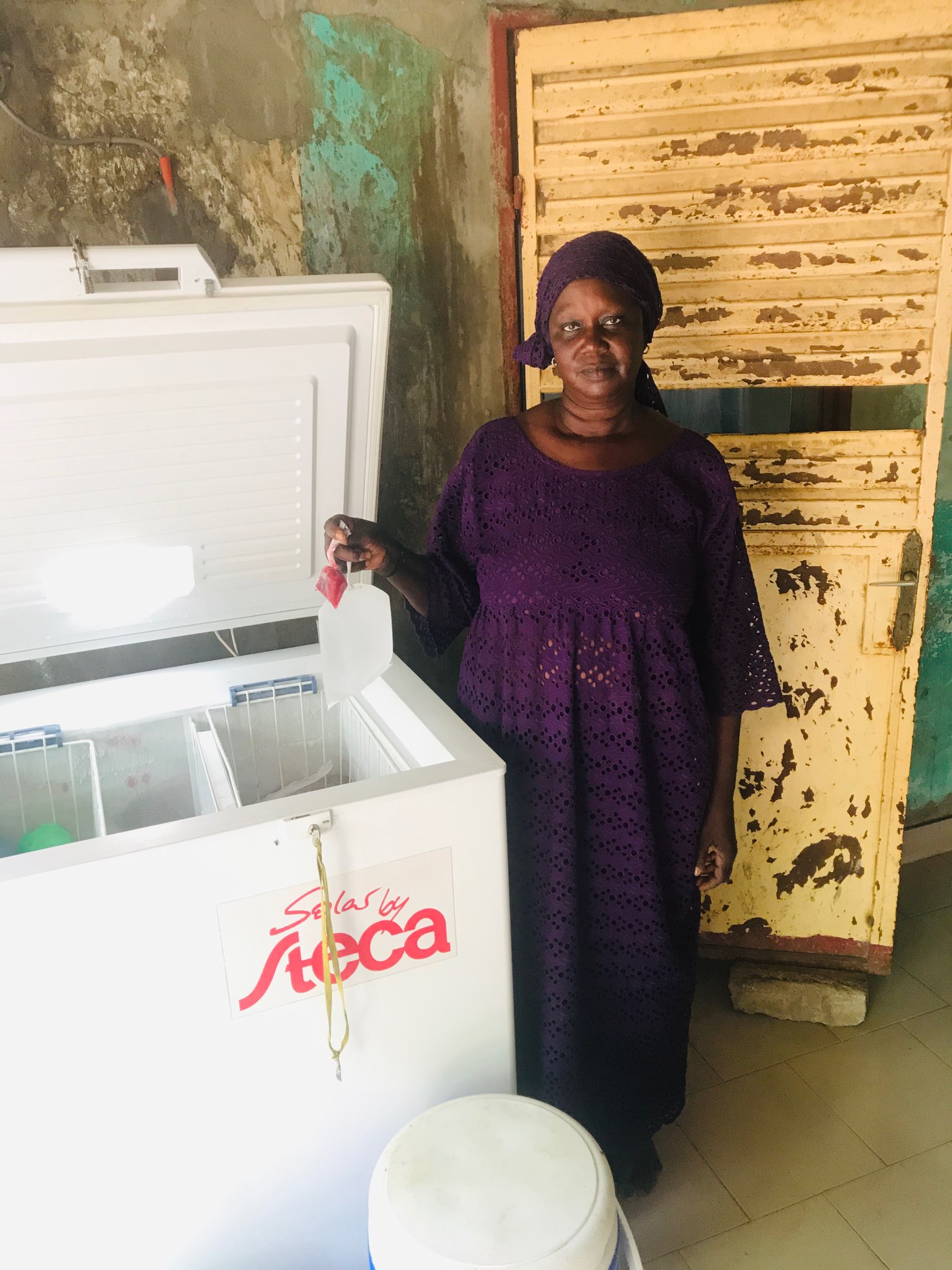Confronting the crisis: Covid-19 recovery strategies to save livelihoods
In Senegal, the coronavirus pandemic has caused a sharp drop in revenue for women entrepreneurs engaged in agro-processing. In tandem with partners and donors, Energy 4 Impact is working to address their immediate needs and is putting relief strategies in place to rescue their struggling businesses.
A recent Energy 4 Impact survey of supported female-run enterprises tracked the daily revenue of a sample women involved in agriculture and food processing across the rural regions of Fatick, Thies, Tambacounda and Kaolak. It showed that income has plummeted by up to 90%. Typically, entrepreneurs who previously earned between $8.50 -12 per day can now only generate a meagre $1-2.50 per day. It therefore comes as little surprise that 70% of them are deeply concerned about their businesses, citing the drop in custom and revenue as their gravest challenge.
In August 2019, Rosalie Mane Diop set out to expand her food business with the help of a solar freezer. She planned to sell popular refrigerated items such as frozen milk and curd to the 2,500-strong population in her remote village of Kourty. Rosalie's business had reached a level of steady growth when the coronavirus pandemic spread towards the inner regions of Senegal.
The government declared a state of emergency: markets and schools were closed and gatherings were banned. Fear spread that frozen food might become contaminated with coronavirus so Rosalie immediately saw an alarming drop in sales. The ban on gatherings also meant she lost one of her biggest revenue streams selling larger volumes of product during weddings or baptisms. Moreover, the demand from resellers, whom she supplied with frozen foods for their own remote villages, dropped away due to restrictions on travel inside Senegal.
Throughout this difficult period, Rosalie honoured her monthly repayment of 65,000 XOF ($ 111) for the solar freezer acquired through partial credit. At first, she dug into savings to keep her business operational, but it became clear that such a redirection of her personal finances jeopardised the welfare of her family so Rosalie brought it to a halt. Unfortunately, the outlook for her business worsened further as sales slowed at the start of the rainy season. With reduced sunlight during the day, it became difficult to fully recharge the freezer batteries and so prevent the ice from melting during the night. Meeting the monthly repayments became unsustainable.
Such business difficulties have become a common story during the Covid-19 pandemic. Dominique Thiaw, a Regional Business Mentor for Energy 4 Impact, describes the scale of the crisis:
Before the pandemic, 90% of the women entrepreneurs we support to expand production and sales through the adoption of solar fridges, irrigation systems, incubators and so on, could comfortably pay off the loan they took to purchase the equipment. Now those who can manage to meet the monthly repayments are few and far between.
To mitigate the mounting financial losses, Energy 4 Impact has negotiated with microfinance institutions to postpone loan repayments for a period of three months (potentially renewable for an additional quarter). Interest charges and late penalty fees have also been temporarily suspended. With this payment deferral in place, Rosalie and other female entrepreneurs can at least buy some time to enable their families to weather the economic and health crisis.
Furthermore, Energy 4 Impact business mentors have developed strategies to help revive the activities of supported female-run businesses. Based on a case-by-case needs assessment, the strategies include guidance on identifying products and services essential to the survival of each business; prioritising the most profitable activities and downsizing if necessary; and giving advice to reshape business practices in order to make enterprises more resilient and adaptable to uncertainty. In addition, information is being provided to promote awareness of COVID-19 and so protect business owners, employees and customers from spreading the virus.
Energy 4 Impact is also working with international donors to ensure Covid-19 recovery funds and grants can be accessed by businesses in need. Such enterprises require help to protect investments and facilitate repayments of outstanding loans. Grants can strengthen the resilience of businesses in the face of the economic crisis by funding the maintenance of solar equipment, lowering credit and cushioning retailers of technical equipment from payment failures.
We have been able to mobilize from GIZ, a co-financier of our women economic empowerment programme along with the ENERGIA network, a Covid-19 fund of about 17K Euros to support investment, the renewal of batteries for example,
says Abdoulaye Dieng, Energy 4 Impact’s Capital Access Coordinator in Senegal.
It will also facilitate the payment of the outstanding loans to 30 women entrepreneurs during the pandemic. This financial support will allow more than 10 women entrepreneurs to restart their activities and face the next debt repayments with peace of mind.
“The scope of our intervention is necessarily limited at this moment in time,” says Mathieu Dalle, West Africa Director for Energy 4 Impact.
However, such rescue packages and recovery funds are examples of best practice and leadership when it comes to protecting the investment that both businesses and funders have made into expanding renewable energy access to power jobs and build sustainable economies in the world’s most deprived areas.
For supported enterprises that are viable yet not resilient enough to weather this period of economic turbulence, it has become clear that grants can provide a pathway for business survival.

